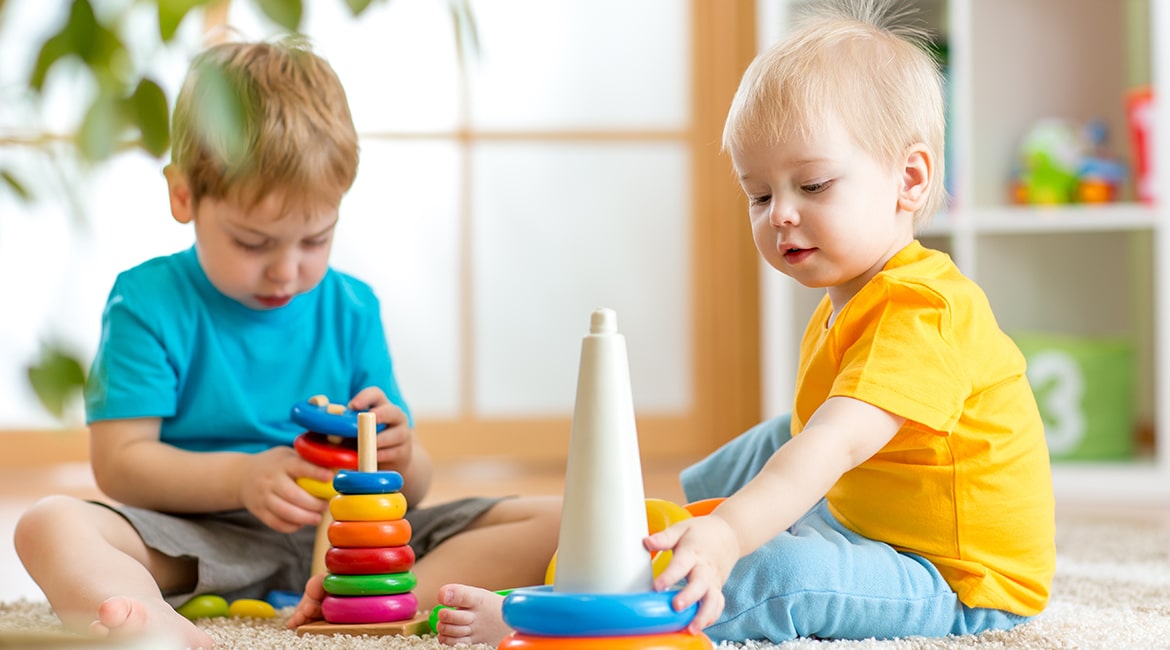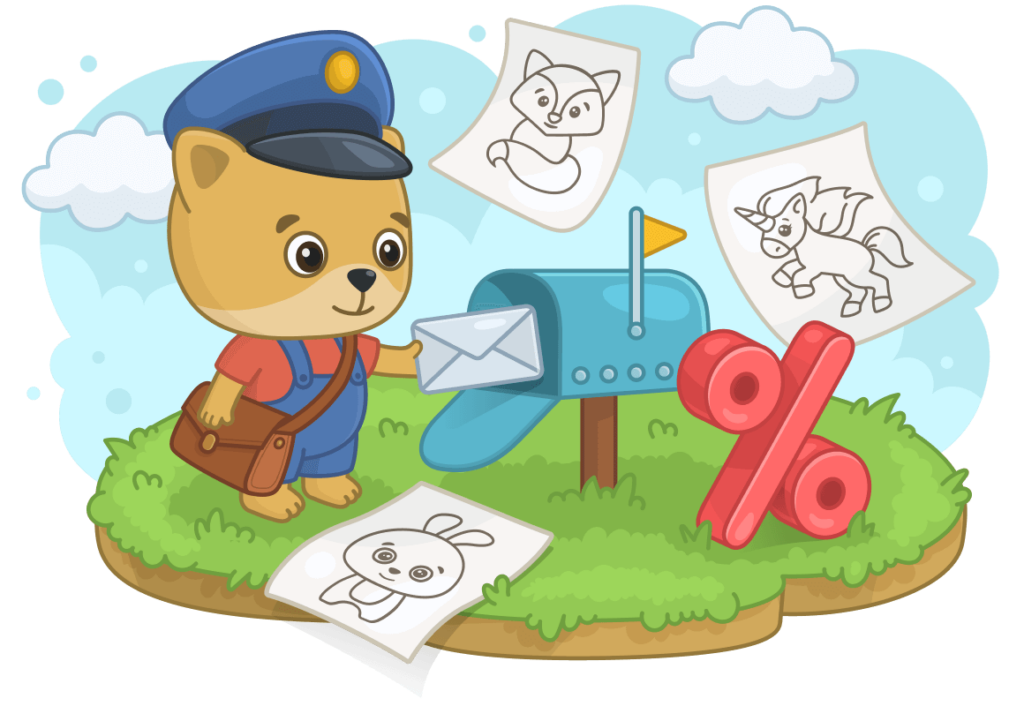“Play gives children a chance to practice what they are learning.” — Fred Rogers (aka Mr. Rogers, producer of TV’s Mr. Rogers Neighborhood)
Play is an essential part of every child’s development. Play begins long before children can hold toys or learn rules, and play helps in brain and personality development. Play can occur at almost every stage in a child’s life, beginning as young as a few months old. Child psychologists divided play into six categories: unoccupied, independent, onlooker, parallel, associative, and cooperative. Each has its importance in child development.
Unoccupied Play
Unoccupied play may look messy and unstructured to an adult. This early stage of play begins with a baby surrounded by objects, such as household items or infant toys. At times the baby may lunge for an object and squeal with glee or simply sit and stare at the mess. But make no mistake: significant connections are made in the growing brain in these moments. This child is learning to make sense of each item.
Independent Play
Independent play occurs when a toddler plays alone with a parent or trusted adult nearby. The toddler can occupy their time with nearby objects, toys, or the sounds of their voice. Independent play is important because it gives toddlers time to practice large and small motor skills, eye-hand coordination, agility, and other skills.
Onlooker Play
Have you ever sat in a public place and watched people go? Thought about their stories, who they interact with, or what they do with their day? You can relate to a toddler engaging in onlooker play if you have. This vital stage occurs when toddlers watch other children playing without engaging. They are processing social interactions, norms, and acceptable behaviors. During Onlooker Play, toddlers learn about the world through observation. They take cues from watching other parents and children, for example. During this stage, they learn touching flowers is ok, but touching doggie poo is not.
Parallel Play
Parallel play signals a shift in your child’s ability to focus on a task, such as playing with one object or concentrating on one activity. At this point, toddlers and young children are more comfortable playing near each other, but not with each other. The play of two children does not overlap during parallel play, though the children may sit close together and engage in similar activities. Playing together requires an entirely different set of skills parallel play toddlers have not yet acquired; they need first to move through this stage of play.
Associative Play
When children develop social curiosity about other children, you will see them grow into associative play. During this stage, toddlers will begin playing with other children, and they are ready to practice what they watched other children do while in the onlooker and parallel play stages. Your child’s focus on a specific activity may decrease, but the focus on the people around your child may increase—toddlers and children in this stage place more importance on playing with someone.
Cooperative Play
Cooperative play occurs in children who have come out of the toddler phase and are closer to preschool and kindergarten. The hallmark of cooperative play is seeing children attempt to build structure into their time together, with rules, guidelines, and ‘what if’ scenarios. Cooperative play can be accompanied by conflict and disagreement, and this may be your child’s first experience with problem solving and resolution.
Adults Supporting Child’s Play
Parents and other trusted adults can plan for and support successful playtimes in their children’s day. Making sure the environment and materials are age and space appropriate are key to helping children enjoy and learn from their playtime. Children approaching preschool age, who engage in associative and cooperative play may need guidance from a trusted adult on how to engage appropriately with other children.
Benefits of Toddler Play
Play increases a child’s imagination and creativity. Play encourages brain growth, cooperation, and emotional regulation. Play is where children gain independence and enjoy physical activity. Toddlers and young children grow and enjoy play in their days, improve movement control, build muscles, and sharpen reflexes. Play also reduces anxiety in children of all ages and boosts self-esteem.




